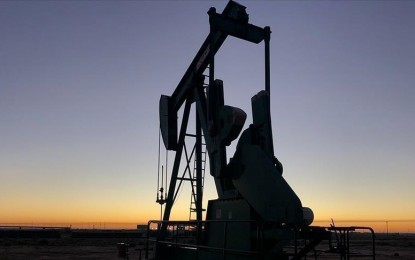[2.6] 중국의 긍정적인 수요 기대에 대한 유가 상승
컨텐츠 정보
- 16,524 조회
본문
ANKARA – 월요일 유가는 세계 최대의 석유 수입국인 중국의 긍정적인 수요 전망으로 소폭 상승했습니다.
국제 벤치마크인 브렌트유는 현지 시간으로 오전 9시 41분(0641 GMT) 배럴당 USD80.15에 거래되었으며, 이전 거래 세션의 배럴당 USD79.94 종가보다 0.3% 상승했습니다.
동시에 미국의 서부텍사스산중질유(WTI)는 배럴당 73.48달러에 거래됐는데, 이는 전 거래일 배럴당 73.39달러에 마감된 후 0.1% 오른 것이다.
국제언론에 따르면 파티 비롤(Fatih Birol) 국제에너지기구(IEA) 사무총장은 일요일 인터뷰에서 중국이 올해 세계 석유 수요 증가분의 약 절반을 차지할 것으로 예상된다고 밝혔다.
그는 중국의 수요가 계속 증가하면 주요 석유 수출국이 생산 정책을 재고할 수 있다고 제안했습니다.
Birol은 "수요가 매우 강력하게 증가하고 중국 경제가 반등한다면 OPEC+ 국가들이 (산출) 정책을 검토할 필요가 있을 것"이라고 말했습니다.
가격은 수요에 대한 우려와 시장 불확실성의 결과로 압박을 받았고, 2월 5일에 발효된 EU의 러시아 해상 석유 제품 금지와 모스크바의 수익 흐름에 추가적인 압력을 가하는 글로벌 가격 상한선으로 인해 악화되었습니다.
러시아산 경유 등 고급 석유제품은 배럴당 100달러, 중유 등 할인제품은 배럴당 45달러 상한제도 7일부터 시행됐다.
한편, 압둘아지즈 빈 살만 사우디 에너지 장관은 일요일 제재로 인한 잠재적인 에너지 공급 삭감에 대해 우려를 표명했습니다.
리야드에서 열린 IAEE(International Association for Energy Economics) 회의에서 주최한 회의에서 그는 "에너지 부문에 대한 제재, 금수 조치 및 눈에 띄는 투자 감소"가 전 세계 에너지 공급 부족으로 이어질 수 있다고 경고했습니다. (아나돌루)
This is Original Article from PNA NEWS
[2.6] Oil up over positive demand expectations in China
ANKARA – Oil prices increased marginally on Monday over positive demand projections in the world's largest oil importer, China.
International benchmark Brent crude traded at USD80.15 per barrel at 09.41 a.m. local time (0641 GMT), up 0.3 percent from the closing price of USD79.94 a barrel in the previous trading session.
At the same time, American benchmark West Texas Intermediate (WTI) traded at USD73.48 per barrel, a 0.1 percent rise after the previous session closed at USD73.39 a barrel.
According to international media outlets, the head of the International Energy Agency, "Fatih Birol," stated in an interview on Sunday that China is expected to account for roughly half of the growth in global oil demand this year.
He suggested that if China's demand continues to rise, major oil exporters may reconsider their production policies.
"If demand goes up very strongly, if the Chinese economy rebounds, then there will be a need, in my view, for the OPEC+ countries to look at their (output) policies," "Birol" was quoted as saying.
Prices came under pressure as a result of demand concerns and market uncertainty, which were exacerbated by the EU ban on Russian seaborne oil products, which took effect on Feb. 5, along with a global price cap to put additional pressure on Moscow's revenue stream.
A price cap of USD100 per barrel on premium Russian oil products such as diesel and a USD45 per barrel on discounted products like fuel oil also came into effect on Sunday.
Meanwhile, Saudi Energy Minister "Abdulaziz bin Salman" expressed concern on Sunday about potential energy supply cuts as a result of the sanctions.
Speaking at a conference organized by the International Association for Energy Economics (IAEE) Conference in Riyadh, he warned that "sanctions, embargoes and the notable drop in investment in the energy sector" could lead to shortages in global energy supply. (Anadolu)
관련자료
-
이전
-
다음


